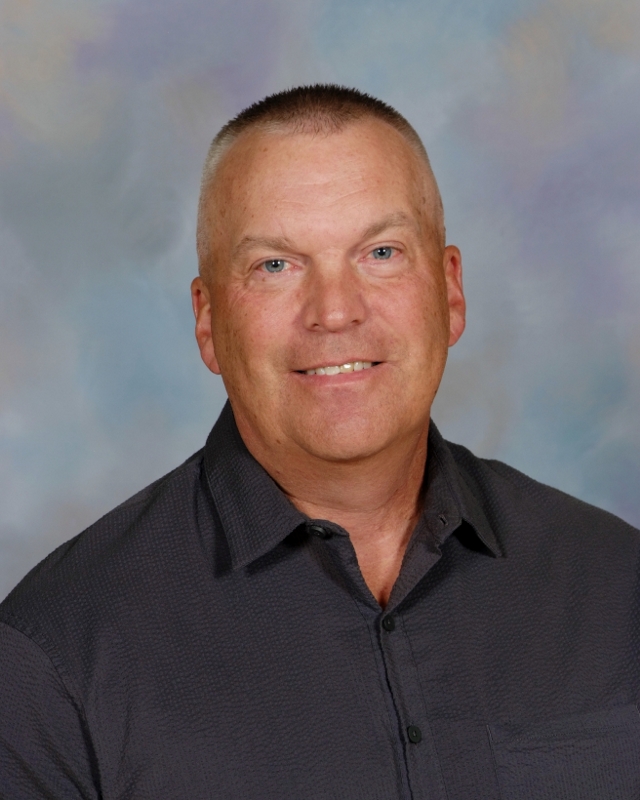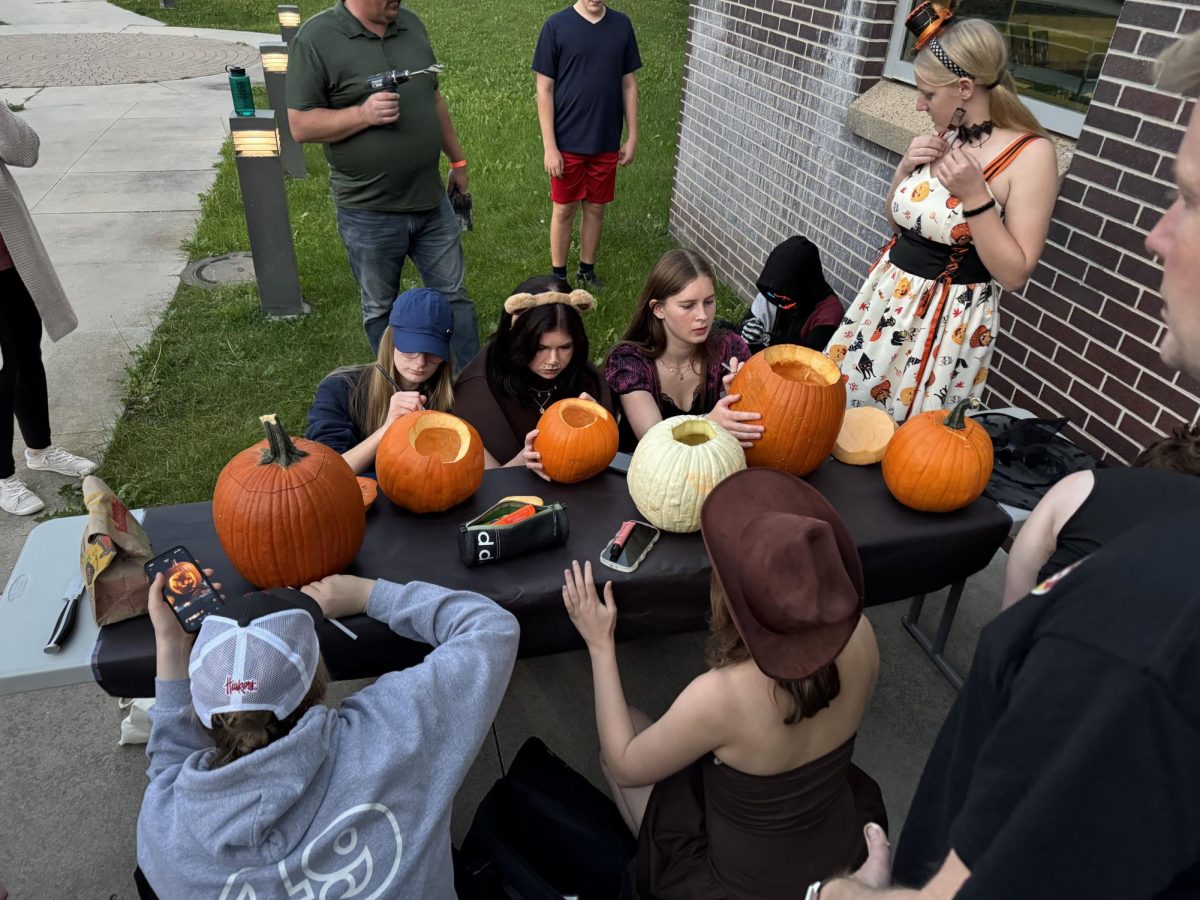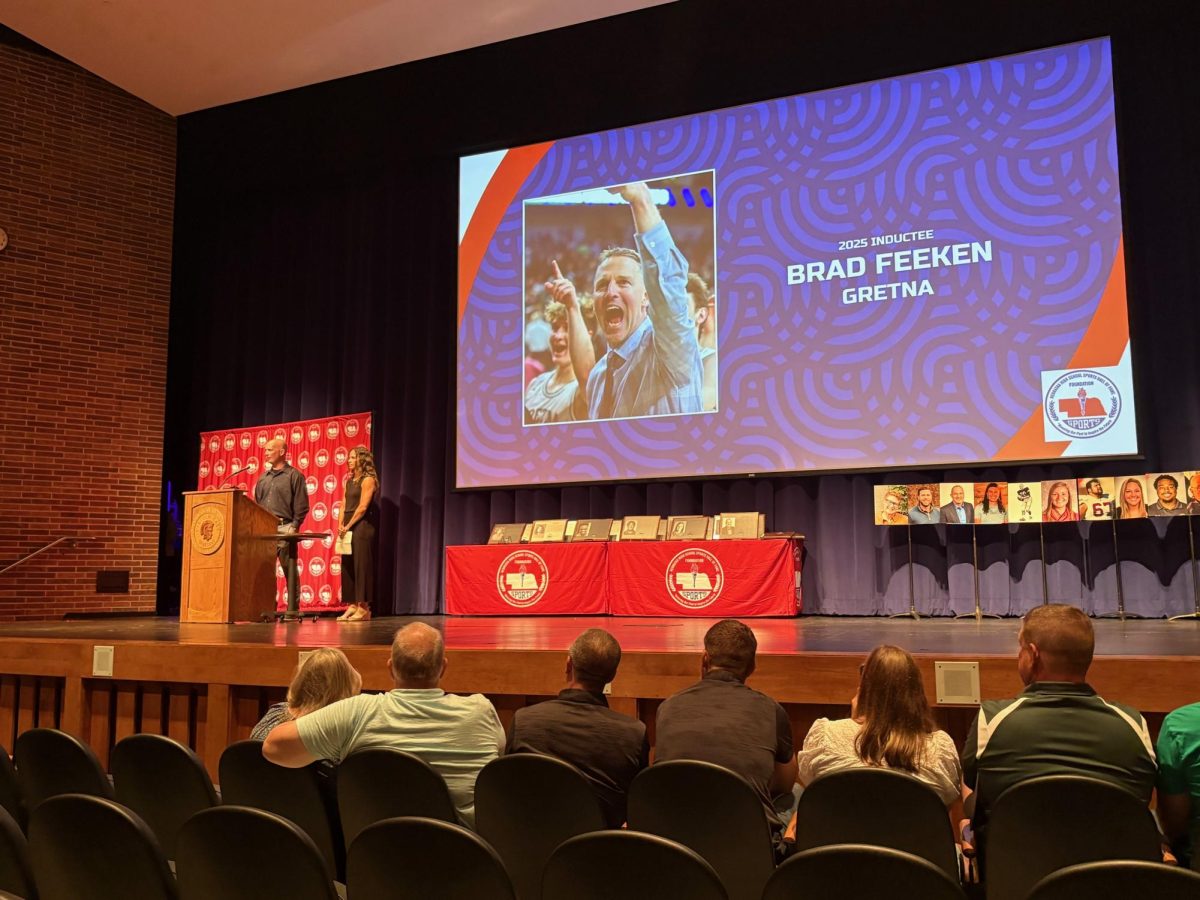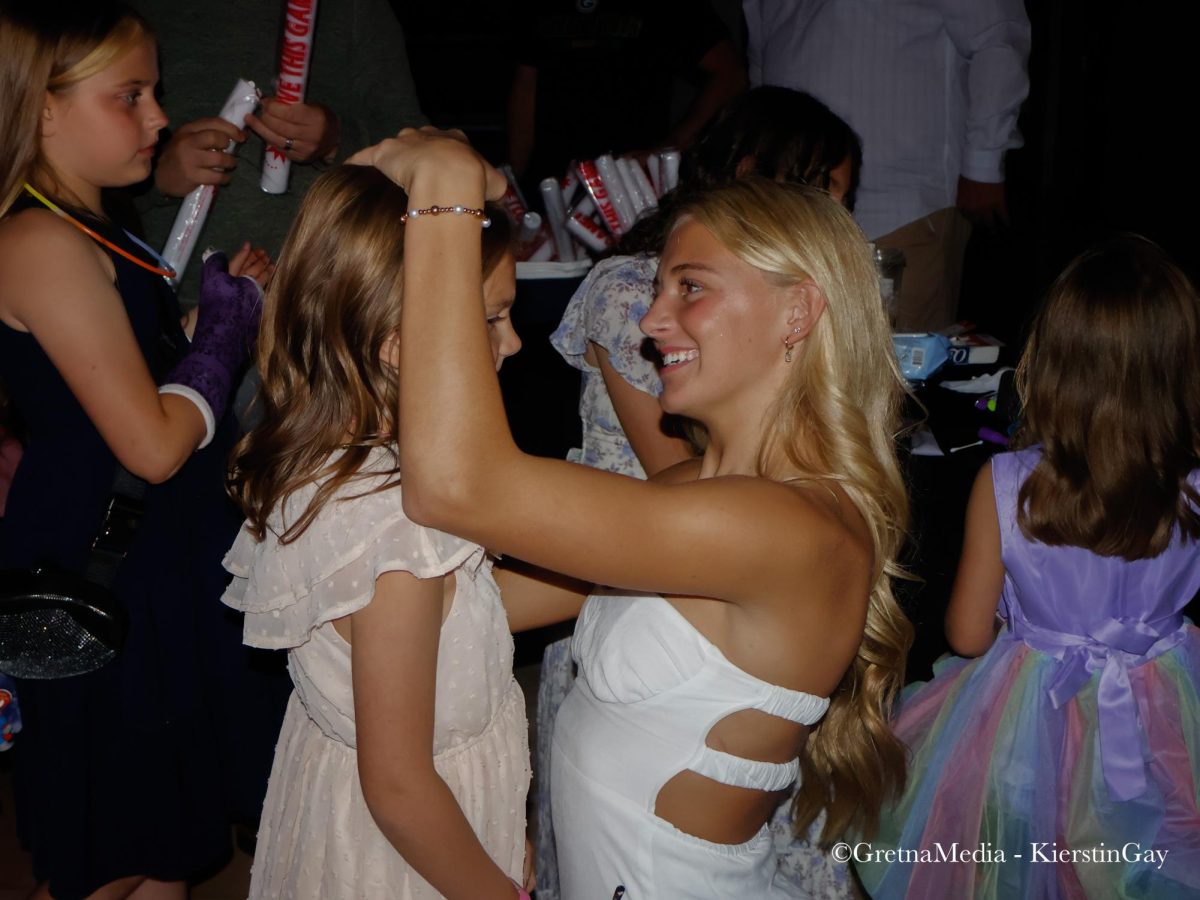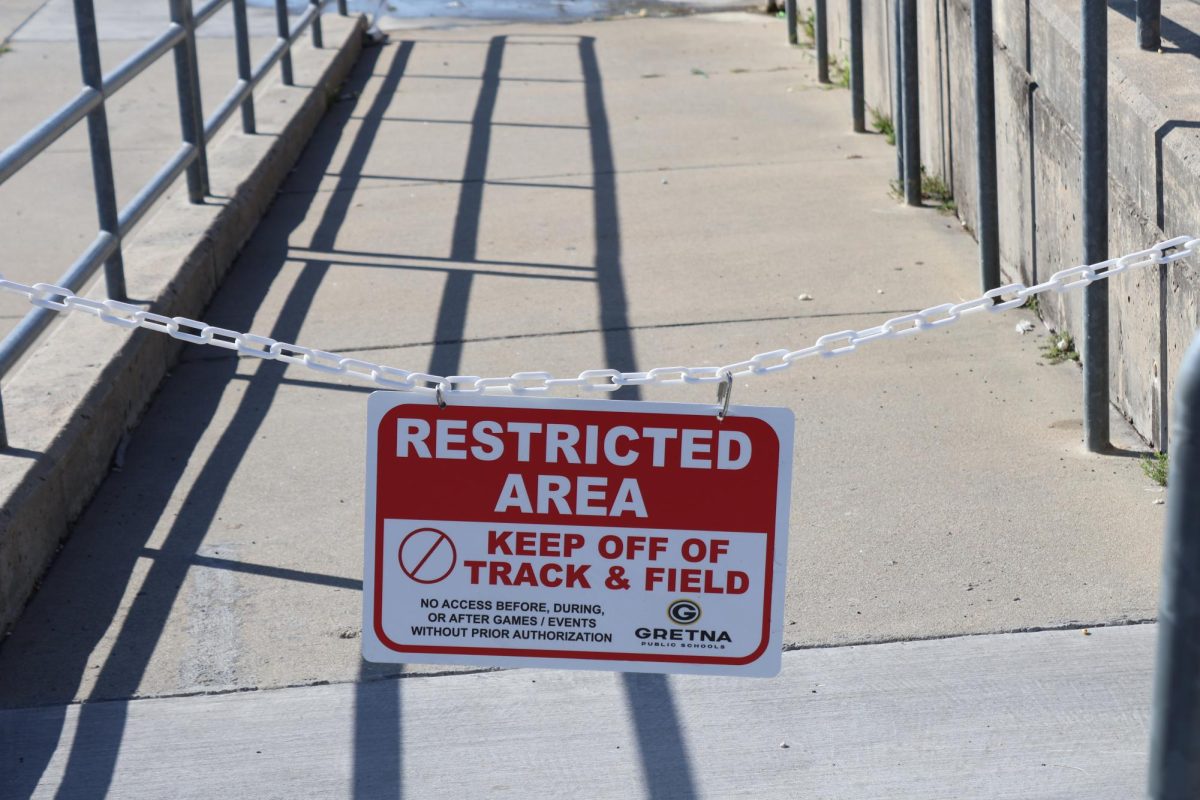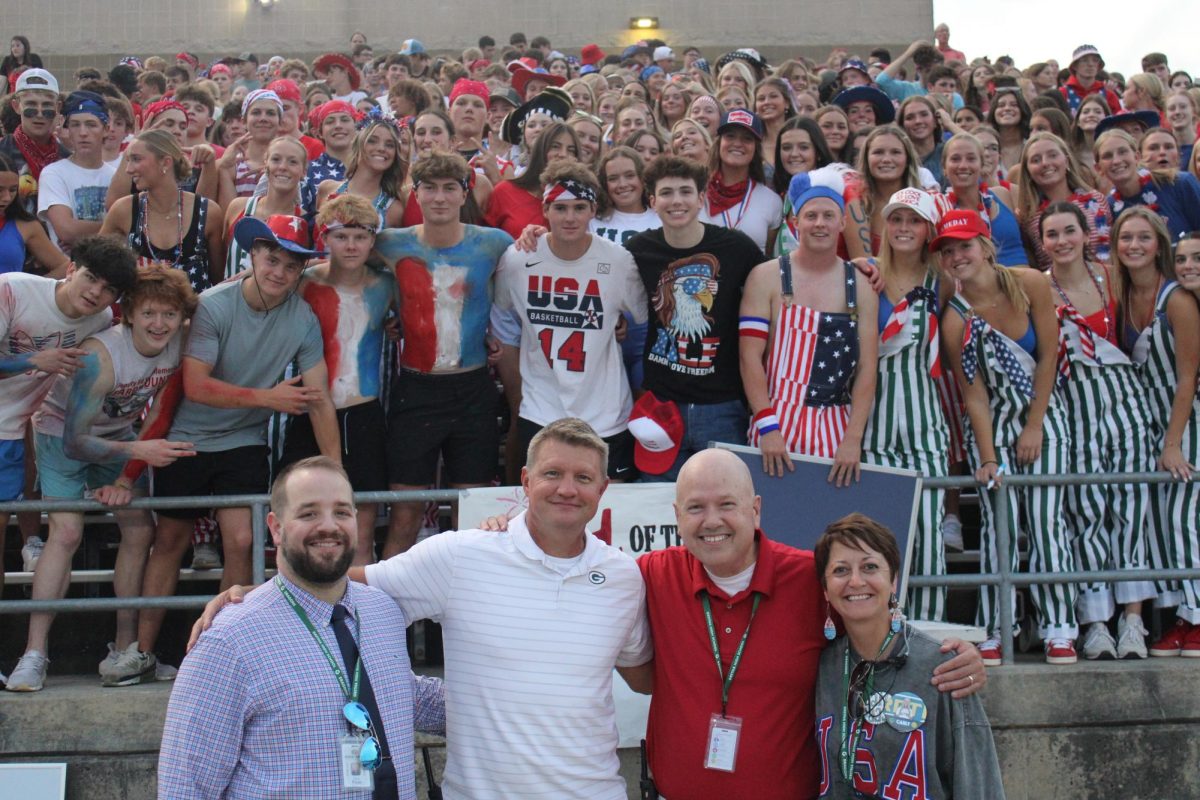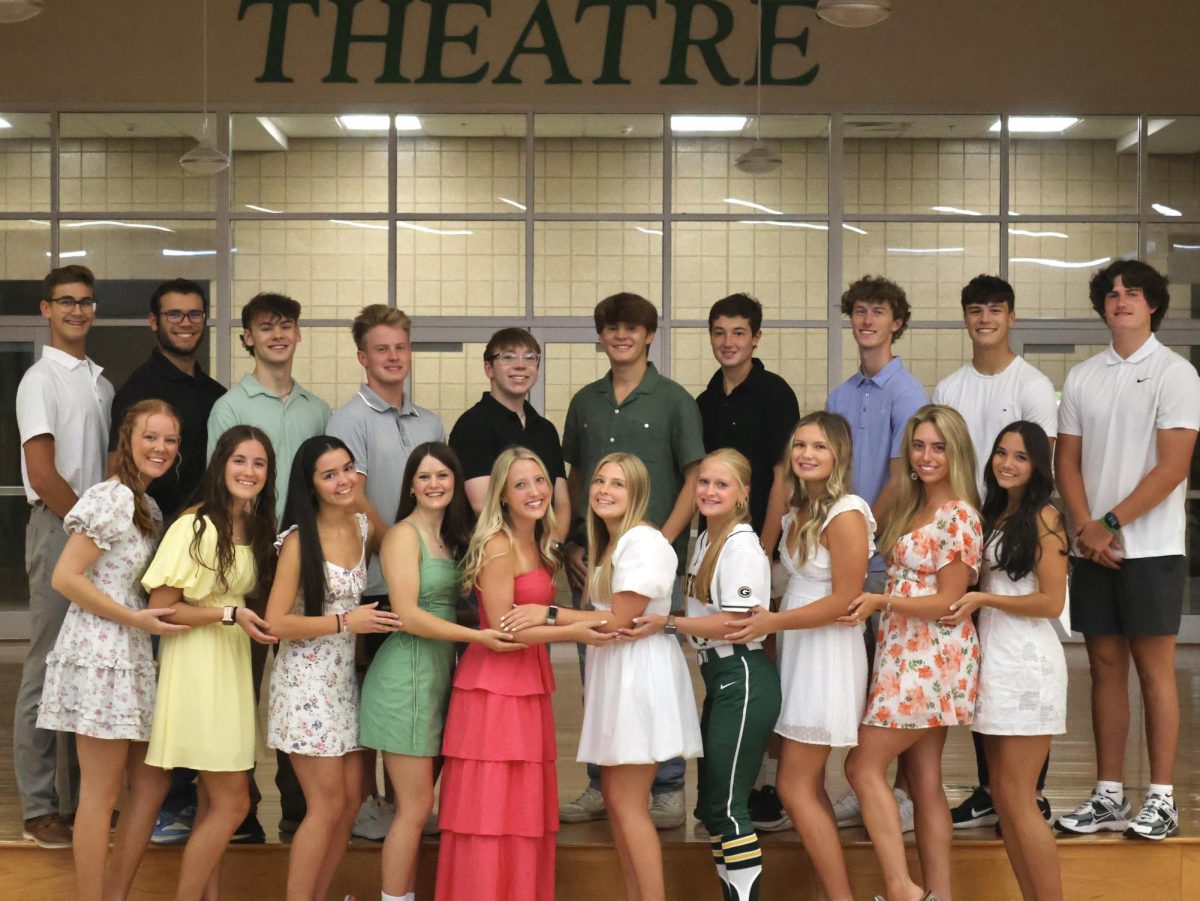From what is now the Gretna Middle School building to a two-high school district, Principal Todd Mueller has seen Gretna and its schools change from a small, rural town to a fast-growing suburb and community. The school he once knew to be grades 6-12 with the weight room on the stage is now a middle school. However, that was the fall of ‘94. Now in 2025, Mueller is spending his last week at the high school building off of 204th street before he retires.
Mueller knew every student’s name in the 6-12 building he originally taught in at the current Gretna Middle School. He spent much of his time working with kids as a history and PE teacher.
“ It was kind of neat when it was 70 kids in a class, and I taught PE; I also taught sixth grade, so I knew every kid in the building by name, every single kid, because I had them,” he said. “I thought it was kind of nice knowing every kid in the school by name. And now there’s no chance of that. Now I see kids daily that I’ve never seen before.”
Before moving to this building in 2005, Mueller climbed the ladder from teacher and freshman football coach to head varsity football coach. Once the current GHS building opened, he stepped into the role of activities director to assistant principal and finally to head principal and what seems like every job in between.
“(I miss teaching) about every day. I just think you get to interact with more kids and more kids in a positive way. So I do miss that,” he said. “Obviously, you make a little more money as a principal, which is why you do it. I miss teaching and just being able to interact with kids and build relationships with them.”
Over the course of his 32 years in education at Gretna, Mueller made those kinds of relationships with an array of students. He understood that each student had different needs, including GHS 2018 graduate Andrew Robledo.
“Andrew had a hard time coming to school sometimes, so it got to the point where I just called him Skippy because he skipped school,” Mueller said. “He and I spent a lot of time together. He’s a good kid, and school’s not for everybody. And I understand that.”
The Gretna Public Schools’ mission is to accept all students unconditionally and maximize their potential. Mueller expressed that he was committed to that message in the way that he would interact with his students.
“Mr. Mueller impacted my life in school by holding me accountable when I would act up,” Robledo said. “It taught me that I can’t do that in the real world because there’s always consequences. He made sure I was always in my detention or with the teacher I was supposed to be with after school, otherwise I’d walk out when the bell rang.”
Class sizes were originally 70 students large when Mueller had his year of student teaching at Gretna. However, right before Gretna East opened, there were about 450 in a grade. This allowed the district to compete against high schools of every size over the last couple decades.
“ I’ve been from C to B to A and now back down to B,” Mueller said. “ You know, we used to play our varsity football field within the outfield of a softball field over at the Gretna Middle School. So to come to that, to now having, you know, a football stadium and those types of things. We had one gym, so multiple gyms in all the buildings, so the facilities and just the size of everything is just kind of amazing to me.”
While the students that occupy the building change each year, the community that rallies around those students and programs are a constant source of support. Gretna has had a longtime reputation for being a “small town” and, while the numbers would contradict that title, that community is a testament to the togetherness that everyone is desperate to preserve.
“ People still talk about when we played in the State championship in football. That was the biggest crowd that they’d ever seen, and they were just blown away that that many people from the community came back,” Mueller said. “ I think the other thing that I notice a lot is kids that graduate from Gretna move back to Gretna after they go away to college and do those things, but they come back and settle here. And I think that’s probably the biggest compliment that you can have because they want their kids to have the same experience that they did going through school.”
Mueller will share with any student or staff member that asks about his retirement plans that he hopes to work a full-time job where he can be responsible for himself, rather than an entire high school’s worth of teachers and children.
“ It’d be nice to get a job where I just show up, do my job, and, like, in a warehouse or something,” he said. “Just show up, put my 40 hours in, not work 70 hour weeks. I want to work 40 hours a week, not 70. Have my evenings open instead of working, have my weekends open instead of working. Yeah, it’s just 30 years of 70 hour weeks wears on a person.”
Over the course of over three decades, Mueller has made several steps to improve things within the building, steps to be proud of. In addition to making an impact on his students’ lives, Mueller has also left his mark by organizing a finals schedule to ensure that the last week of the school year is an effective one.
“ The last week was just chaos, because you’re trying to finish up the year, but nobody had anything to do,” Mueller said. “And I think finals is what is best for kids. It adds some structure, it provides ’em of those things. But, again, I think probably the relationships with the students and the staff is a thing that I’ll remember most.”


